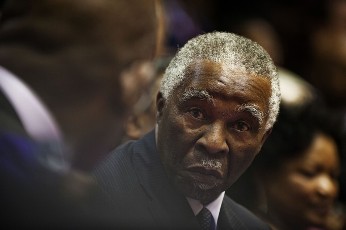Sudan reiterates rejection of AU plan for Darfur hybrid courts
July 25, 2011 (KHARTOUM) – The Sudanese government reaffirmed its position of opposing the establishment of hybrid courts to try individuals suspected of committing war crimes in the restive region of Darfur.

This would follow amendments to legislation that would allow legally qualified non-nationals to serve on the judiciary of Sudan along with other changes to rules of immunities and the penal code.
The AU has formed the commission following the case brought at the International Criminal Court (ICC) against president Omer Hassan al-Bashir. The pan-African body has also instructed its members to ignore the arrest warrant against the Sudanese leader.
Bashir has dismissed the hybrid court proposal and said that Mbeki is aware of Sudan’s reservations on the recommendation drawn up by his panel.
Mbeki has achieved little headway in implementing his recommendations related to Darfur and has shifted focus to resolving differences between North and South Sudan.
Qutbi al-Mahdi, head of political bureau at the ruling National Congress Party (NCP), was cited by the independent Al-Sahafa newspaper as saying that the peace accord signed in Doha with Liberation and Justice Movement (LJM) “explicitly” stated Khartoum’s rejection of Darfur hybrid courts.
He further added that national courts mentioned in the agreement will be purely local which al-Mahdi said conforms with Article 26 of the Rome Statute of the ICC.
The NCP official also stressed that they reject any monitoring of national proceedings by the African Union-United Nations Mission in Darfur (UNAMID).
A clause in the Doha agreement stated that a team of experts from UNAMID would monitor the court proceedings to ensure it is functioning smoothly and in accordance with the rules of justice and equity enshrined in international law.
Sudan formed several special courts since 2005 which has yet to produce indictments.
The former state minister for justice Bol Lul Wang said this year that Khartoum is not serious about prosecuting Darfur war crimes suspects.
Since 2003, when the deadly conflict erupted in Darfur between rebels, Government forces and allied militiamen, an estimated 300,000 people have been killed and about 2.7 million others have been displaced.
(ST)
